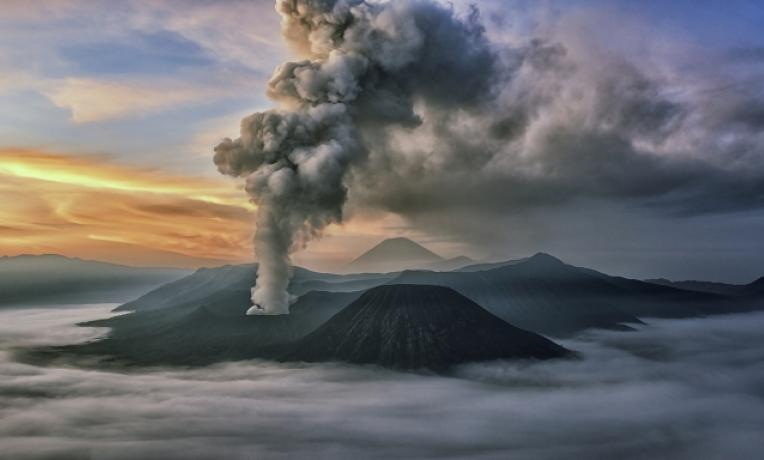Special feature: ERC funded research in volcanoes and their wider impact
15 May 2011
- "Lightning", Charge separation, lightning and radio emission in low-mass object

-
"Lightning", Charge separation, lightning and radio emission in low-mass object
This research will model dust formation under astrophysical conditions. Dust clouds of mixed composition and sized are common on Earth and in space, for example in volcano plumes that influence the local climate on Earth, or on Mars. Dust clouds in Brown Dwarfs and on other planets determine their chemistry and their detectability. This project will study dusty astrophysical plasmas, and specifically the charge separation processes that can lead to lightning within these clouds. The project will advance the understanding of Earth's volcano plume development and could impact areas such as origin of life, as lightning is suggested to have triggered the occurrence of life on Earth.
Researcher: Dr. Christiane HELLING, University of Saint Andrews, UK
Website
-
"Evokes", Explosive Volcanism in the Earth System
Explosive volcanism, such as currently evidenced on Iceland, has a huge and direct impact on mankind, be it on local, regional and even global scale. At the same time, the very nature of explosive volcanism makes it difficult to observe directly. This researcher uses experimental volcanology, i.e., model systems of explosive volcanoes under the controlled conditions of a laboratory, to study directly the physical and chemical processes that cause the destructiveness of explosive volcanic eruptions. In particular, the researcher is producing ash in the laboratory for experiments on its interaction with the atmosphere, hydrosphere and biosphere.
Researcher: Prof. Dr. Donald B. DINGWELL, LMU Munich, Germany
Website
-
"Demons", Deciphering Eruptions by Modeling Outputs of Natural Systems
This research project links the composition of gases emitted by volcanoes with their future activity and the nature of their eruptions, which for instance can be explosive or non-explosive. This will help assessing the risk associated with specific volcanoes and limiting volcanic hazards.
Researcher: Dr. Alain BURGISSER, CNRS, France
Website
-
"Voldies", Dynamics of volcanoes and their impact on the environment and society
This project explores volcanic risk and how to limit danger by looking into physical and chemical processes, which are taking place in the very heart of a volcano – its so called magma chamber.
Based on this fundamental study of the dynamics of magma chambers, the researcher will set-up a global database on volcanic eruptions, their hazards and key risk factors and combine this approach with developing novel methods of risk assessment.
Researcher: Prof. Stephen SPARKS, University of Bristol, UK
Websites: http://www.gly.bris.ac.uk/people/rsjs.html and http://gfd.gly.bris.ac.uk/
-
"Atmoflex", Turbulent Transport in the Atmosphere: Fluctuations and Extreme Events
This project is not about volcanoes as such, but is highly relevant in the current situation, as it uses new methods to understand and predict how tiny particles are transported in the atmosphere.
Contrary to currently used models, this approach takes into account air turbulence and the fact that the transported particles can change during their journey e.g. by being covered by water or ice, or by forming larger clusters.
The project will help to improve forecasts in meteorology and to explore the effects of fine particles in the atmosphere onto climate.
Researcher: Dr. Jérémie BEC, Observatoire de la Côte d'Azur, France
Website

